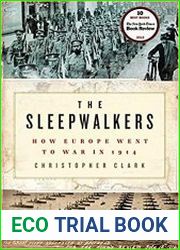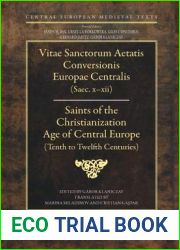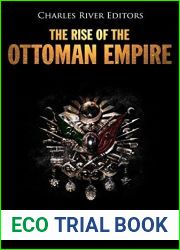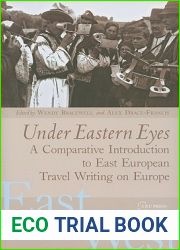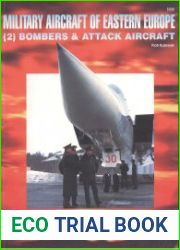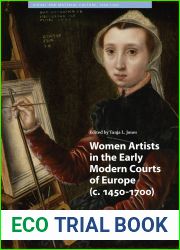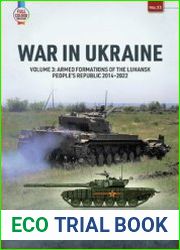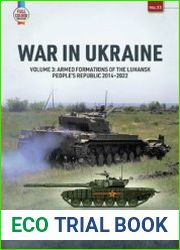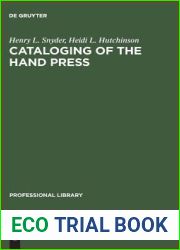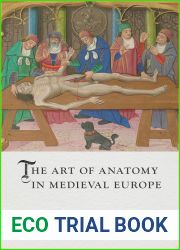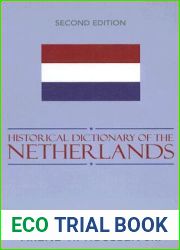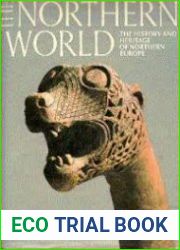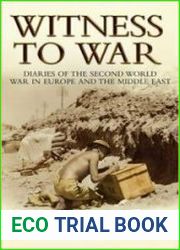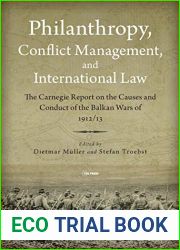
BOOKS - MILITARY HISTORY - The Sleepwalkers How Europe Went to War in 1914

The Sleepwalkers How Europe Went to War in 1914
Author: Christopher Clark
Year: 2013
Pages: 736
Format: PDF
File size: 49,7 MB
Language: ENG

Year: 2013
Pages: 736
Format: PDF
File size: 49,7 MB
Language: ENG

The Sleepwalkers: How Europe Went to War in 1914 by Christopher Clark is a captivating historical narrative that delves into the intricate web of events and relationships that culminated in the outbreak of World War I. The book takes a unique approach by focusing not on the battles and atrocities of the war, but rather on the complex factors that led well-meaning leaders down the path of brutal conflict. Through meticulous research and compelling storytelling, Clark weaves together the stories of European leaders, diplomats, and military strategists to reveal how a combination of factors—including technology evolution, personal paradigms, and human perception—led to the devastating war. At the heart of the book is the notion that the sleepwalkers of Europe—leaders who were oblivious to the dangers of their actions—unwittingly pushed the continent towards war. Clark argues that these leaders were driven by a desire for power, prestige, and security, which ultimately led to the catastrophic consequences of the war. He contends that the development of modern technology, particularly in the realm of weaponry, played a significant role in the escalation of violence and the unprecedented scale of destruction. To understand the events leading up to the war, Clark examines the interconnectedness of European nations, highlighting the web of alliances, rivalries, and misunderstandings that created an environment ripe for conflict. He also explores the psychological and emotional factors that influenced decision-making among leaders, demonstrating how personal biases and prejudices shaped the course of history.
«Лунатики: Как Европа вступила в войну в 1914 году» Кристофера Кларка - это увлекательное историческое повествование, которое углубляется в запутанную сеть событий и отношений, которые завершились началом Первой мировой войны. Книга использует уникальный подход, сосредоточив внимание не на сражениях и зверствах войны, но скорее на сложных факторах, которые привели благонамеренных лидеров на путь жестокого конфликта. Благодаря тщательным исследованиям и убедительному повествованию Кларк объединяет истории европейских лидеров, дипломатов и военных стратегов, чтобы показать, как сочетание факторов - включая эволюцию технологий, личные парадигмы и человеческое восприятие - привело к разрушительной войне. В основе книги лежит представление о том, что лунатики Европы - лидеры, которые не обращали внимания на опасность своих действий - невольно подтолкнули континент к войне. Кларк утверждает, что этими лидерами двигало стремление к власти, престижу и безопасности, что в конечном итоге привело к катастрофическим последствиям войны. Он утверждает, что развитие современных технологий, особенно в области вооружений, сыграло важную роль в эскалации насилия и беспрецедентных масштабах разрушений. Чтобы понять события, приведшие к войне, Кларк исследует взаимосвязь европейских наций, подчеркивая сеть альянсов, соперничества и недопонимания, которые создали среду, созревшую для конфликта. Он также исследует психологические и эмоциональные факторы, которые повлияли на принятие решений среди лидеров, демонстрируя, как личные предубеждения и предрассудки сформировали ход истории.
« Lunatics : Comment l'Europe est entrée en guerre en 1914 » Christopher Clark est un récit historique fascinant qui s'enfonce dans un réseau confus d'événements et de relations qui ont culminé avec le début de la Première Guerre mondiale. livre adopte une approche unique, en se concentrant non pas sur les batailles et les atrocités de la guerre, mais plutôt sur les facteurs complexes qui ont conduit les dirigeants bien intentionnés sur la voie d'un conflit brutal. Grâce à des recherches minutieuses et à un récit convaincant, Clark réunit les histoires des dirigeants européens, des diplomates et des stratèges militaires pour montrer comment une combinaison de facteurs - y compris l'évolution de la technologie, des paradigmes personnels et des perceptions humaines - a conduit à une guerre dévastatrice. livre se fonde sur l'idée que les somnambules de l'Europe - des dirigeants qui ignoraient le danger de leurs actions - ont involontairement poussé le continent à la guerre. Clark affirme que ces dirigeants ont été motivés par le désir de pouvoir, de prestige et de sécurité, ce qui a finalement entraîné les conséquences désastreuses de la guerre. Il affirme que le développement des technologies modernes, en particulier dans le domaine des armements, a joué un rôle important dans l'escalade de la violence et l'ampleur sans précédent des destructions. Pour comprendre les événements qui ont conduit à la guerre, Clark explore l'interconnexion des nations européennes, mettant en évidence le réseau d'alliances, de rivalités et de malentendus qui ont créé un environnement mûr pour le conflit. Il explore également les facteurs psychologiques et émotionnels qui ont influencé la prise de décisions parmi les dirigeants, démontrant comment les préjugés et les préjugés personnels ont façonné le cours de l'histoire.
«Lunáticos: Cómo entró en guerra en 1914» de Christopher Clarke es una fascinante narrativa histórica que profundiza en la confusa red de acontecimientos y relaciones que culminaron con el estallido de la Primera Guerra Mundial. libro adopta un enfoque único, centrándose no en las batallas y atrocidades de la guerra, sino más bien en los complejos factores que llevaron a los líderes bienintencionados al camino de un conflicto brutal. A través de una investigación minuciosa y una narrativa convincente, Clarke reúne las historias de líderes europeos, diplomáticos y estrategas militares para mostrar cómo una combinación de factores -incluyendo la evolución de la tecnología, los paradigmas personales y la percepción humana- condujo a una guerra devastadora. libro se basa en la noción de que los sonámbulos de - líderes que no prestaron atención al peligro de sus acciones - empujaron involuntariamente al continente a la guerra. Clarke sostiene que estos líderes fueron impulsados por el deseo de poder, prestigio y seguridad, lo que finalmente condujo a las desastrosas consecuencias de la guerra. Afirma que el desarrollo de la tecnología moderna, especialmente en la esfera de las armas, ha desempeñado un papel importante en la escalada de la violencia y la destrucción sin precedentes. Para comprender los acontecimientos que condujeron a la guerra, Clarke explora la interconexión de las naciones europeas, destacando la red de alianzas, rivalidades y malentendidos que crearon un entorno maduro para el conflicto. También explora los factores psicológicos y emocionales que han influido en la toma de decisiones entre los líderes, demostrando cómo los prejuicios y prejuicios personales han moldeado el curso de la historia.
«Os sonâmbulos: Como a entrou em guerra em 1914», de Christopher Clark, é uma história fascinante que se aprofunda em uma rede confusa de eventos e relações que terminou no início da Primeira Guerra Mundial. O livro usa uma abordagem única, não focando nas batalhas e atrocidades da guerra, mas sim em fatores complexos que levaram líderes bem intencionados ao caminho de um conflito brutal. Através de uma pesquisa minuciosa e uma narrativa convincente, Clark reúne histórias de líderes europeus, diplomatas e estrategistas militares para mostrar como a combinação de fatores - incluindo a evolução da tecnologia, paradigmas pessoais e percepções humanas - levou a uma guerra devastadora. O livro baseia-se na ideia de que os sonâmbulos da - líderes que ignoraram os perigos de suas ações - empurraram o continente para a guerra sem querer. Clark afirma que estes líderes foram impulsionados pelo desejo de poder, prestígio e segurança, o que acabou tendo consequências catastróficas da guerra. Ele afirma que o desenvolvimento de tecnologias modernas, especialmente na área de armas, tem sido importante na escalada da violência e na escala sem precedentes de destruição. Para entender os acontecimentos que levaram à guerra, Clark explora a relação entre as nações europeias, enfatizando a rede de alianças, rivalidades e mal-entendidos que criou um ambiente maduro para o conflito. Ele também explora fatores psicológicos e emocionais que influenciaram a tomada de decisões entre os líderes, mostrando como preconceitos pessoais e preconceitos moldaram o curso da história.
«I sonnambuli: Come l'entrò in guerra nel 1914» di Christopher Clark è un'affascinante narrazione storica che si approfondisce in una complessa rete di eventi e relazioni che hanno portato allo scoppio della Prima Guerra Mondiale. Il libro ha un approccio unico, non focalizzandosi sulle battaglie e le atrocità della guerra, ma piuttosto sui fattori complessi che hanno portato i leader ben intenzionati sulla strada del conflitto violento. Attraverso una ricerca approfondita e una narrazione convincente, Clark unisce le storie di leader europei, diplomatici e strateghi militari per dimostrare come la combinazione di fattori - tra cui l'evoluzione tecnologica, i paradigmi personali e la percezione umana - abbia portato a una guerra devastante. Il libro si basa sull'idea che i sonnambuli dell'- leader che ignoravano i pericoli delle loro azioni - hanno involontariamente spinto il continente verso la guerra. Clark sostiene che questi leader siano stati guidati dalla ricerca del potere, del prestigio e della sicurezza, che alla fine ha portato alle catastrofiche conseguenze della guerra. Sostiene che lo sviluppo della tecnologia moderna, in particolare nel campo delle armi, ha avuto un ruolo importante nell'escalation della violenza e nella portata senza precedenti della distruzione. Per comprendere gli eventi che hanno portato alla guerra, Clark sta esplorando le relazioni tra le nazioni europee, sottolineando la rete di alleanze, rivalità e fraintendimenti che hanno creato l'ambiente maturato per il conflitto. Egli indaga anche i fattori psicologici ed emotivi che hanno influenzato le decisioni tra i leader, dimostrando come pregiudizi e pregiudizi personali abbiano formato il corso della storia.
„Die Schlafwandler: Wie 1914 in den Krieg eintrat“ von Christopher Clark ist eine faszinierende historische Erzählung, die sich in das verworrene Netz von Ereignissen und Beziehungen vertieft, das mit dem Ausbruch des Ersten Weltkriegs endete. Das Buch verfolgt einen einzigartigen Ansatz und konzentriert sich nicht auf die Schlachten und Gräueltaten des Krieges, sondern auf die komplexen Faktoren, die wohlmeinende Führer auf den Weg eines brutalen Konflikts gebracht haben. Durch sorgfältige Forschung und überzeugende Erzählung bringt Clark die Geschichten europäischer Führer, Diplomaten und Militärstrategen zusammen, um zu zeigen, wie eine Kombination von Faktoren - einschließlich der Entwicklung der Technologie, persönlicher Paradigmen und menschlicher Wahrnehmung - zu einem verheerenden Krieg geführt hat. Das Buch basiert auf der Vorstellung, dass s Schlafwandler - Führer, die der Gefahr ihres Handelns keine Beachtung schenkten - den Kontinent unfreiwillig in den Krieg getrieben haben. Clark behauptet, dass diese Führer durch das Streben nach Macht, Prestige und cherheit getrieben wurden, was schließlich zu den katastrophalen Folgen des Krieges führte. Er argumentiert, dass die Entwicklung moderner Technologien, insbesondere im Bereich der Rüstung, eine wichtige Rolle bei der Eskalation der Gewalt und dem beispiellosen Ausmaß der Zerstörung gespielt habe. Um die Ereignisse zu verstehen, die zum Krieg führten, untersucht Clark die Beziehungen der europäischen Nationen und hebt das Netzwerk von Allianzen, Rivalitäten und Missverständnissen hervor, das ein Umfeld geschaffen hat, das für Konflikte reif ist. Es untersucht auch die psychologischen und emotionalen Faktoren, die die Entscheidungsfindung unter Führungskräften beeinflusst haben, und zeigt, wie persönliche Vorurteile und Vorurteile den Lauf der Geschichte geprägt haben.
Christopher Clark „Sleepwalkers: How Europe Entered the War in 1914” to fascynująca historyczna narracja, która zagłębia się w skomplikowaną sieć wydarzeń i relacji, które zakończyły się wybuchem I wojny światowej. skupiając się nie na bitwach i okrucieństwach wojny, ale raczej na złożonych czynnikach, które doprowadziły znakomitych przywódców na ścieżkę gwałtownego konfliktu. Poprzez staranne badania i przekonującą narrację, Clark skupia historie europejskich przywódców, dyplomatów i strategów wojskowych, aby pokazać, jak połączenie czynników - w tym ewolucji technologii, paradygmatów osobistych i postrzegania człowieka - doprowadziło do druzgocącej wojny. U podstaw książki leży pojęcie, że śpiący Europejczycy - przywódcy, którzy cofnęli się przed niebezpieczeństwami swoich działań - nieświadomie pchnęli kontynent ku wojnie. Clark twierdzi, że przywódcy ci byli napędzani pragnieniem władzy, prestiżu i bezpieczeństwa, co ostatecznie doprowadziło do katastrofalnych konsekwencji wojny. Twierdzi, że rozwój nowoczesnej technologii, zwłaszcza w dziedzinie broni, odegrał ważną rolę w eskalacji przemocy i bezprecedensowej skali zniszczenia. Aby zrozumieć wydarzenia prowadzące do wojny, Clark bada wzajemne powiązania narodów europejskich, podkreślając sieć sojuszy, rywalizacji i nieporozumień, które stworzyły środowisko dojrzałe do konfliktu. Bada również czynniki psychologiczne i emocjonalne, które wpłynęły na podejmowanie decyzji wśród przywódców, pokazując, jak osobiste uprzedzenia i uprzedzenia kształtowały przebieg historii.
”Sleepwalkers: How Europe Hanged the War in 1914” הוא נרטיב היסטורי מרתק המתעמק ברשת המורכבת של אירועים ומערכות יחסים שהגיעו לשיאם בפרוץ מלחמת העולם הראשונה. התמקדות לא בקרבות ובזוועות המלחמה, אלא בגורמים המורכבים שהובילו מנהיגים בעלי כוונות טובות לדרך של עימות אלים. באמצעות מחקר זהיר ונרטיב משכנע, קלארק מקבץ את סיפוריהם של מנהיגי אירופה, דיפלומטים ואסטרטגים צבאיים כדי להראות כיצד שילוב של גורמים - כולל התפתחות הטכנולוגיה, פרדיגמות אישיות ותפיסה אנושית - הוביל למלחמה הרסנית. בלב הספר עומדת התפיסה שהמהלכים הסהרוריים של אירופה - מנהיגים אשר משכו בכתפיהם את הסכנות שבמעשיהם - דחפו מבלי משים את היבשת למלחמה. קלארק טוען כי מנהיגים אלה הונעו על ידי הרצון לשלטון, יוקרה וביטחון, שבסופו של דבר הוביל לתוצאות הרות האסון של המלחמה. הוא טוען שהתפתחות הטכנולוגיה המודרנית, במיוחד בתחום הנשק, מילאה תפקיד חשוב בהסלמת האלימות ובהיקף ההרס חסר התקדים. כדי להבין את האירועים שקדמו למלחמה, קלארק חוקר את הקשר ההדדי בין מדינות אירופה, ומדגיש את רשת הבריתות, היריבויות ואי-הבנות שיצרו סביבה בשלה לסכסוך. הוא גם בוחן את הגורמים הפסיכולוגיים והרגשיים שהשפיעו על קבלת החלטות בקרב מנהיגים, ומדגים כיצד הטיות אישיות ודעות קדומות עיצבו את מהלך ההיסטוריה.''
Christopher Clark'ın "Uyurgezerler: Avrupa 1914'daki Savaşa Nasıl Girdi", I. Dünya Savaşı'nın patlak vermesiyle sonuçlanan karmaşık olay ve ilişki ağını inceleyen büyüleyici bir tarihsel anlatı. Savaşın savaşlarına ve zulümlerine değil, daha çok iyi niyetli liderleri şiddetli bir çatışma yoluna götüren karmaşık faktörlere odaklanıyor. Dikkatli bir araştırma ve etkileyici bir anlatı sayesinde Clark, Avrupalı liderlerin, diplomatların ve askeri stratejistlerin hikayelerini bir araya getirerek, teknolojinin evrimi, kişisel paradigmalar ve insan algısı da dahil olmak üzere bir dizi faktörün nasıl yıkıcı bir savaşa yol açtığını gösteriyor. Kitabın özünde, Avrupa'nın uyurgezerlerinin - eylemlerinin tehlikelerinden korkan liderlerin - farkında olmadan kıtayı savaşa ittiği fikri var. Clark, bu liderlerin savaşın yıkıcı sonuçlarına yol açan güç, prestij ve güvenlik arzusundan kaynaklandığını savunuyor. Özellikle silah alanında modern teknolojinin gelişmesinin, şiddetin artmasında ve benzeri görülmemiş yıkım ölçeğinde önemli bir rol oynadığını savunuyor. Savaşa yol açan olayları anlamak için Clark, Avrupa uluslarının birbirine bağlılığını araştırıyor, çatışmaya hazır bir ortam yaratan ittifaklar, rekabetler ve yanlış anlamalar ağını vurguluyor. Ayrıca, liderler arasında karar vermeyi etkileyen psikolojik ve duygusal faktörleri araştırıyor, kişisel önyargıların ve önyargıların tarihin akışını nasıl şekillendirdiğini gösteriyor.
«السائرون نائمون: كيف دخلت أوروبا الحرب في عام 1914» لكريستوفر كلارك هو سرد تاريخي رائع يتعمق في الشبكة المعقدة للأحداث والعلاقات التي بلغت ذروتها في اندلاع الحرب العالمية الأولى. يتخذ الكتاب نهجًا فريدًا، لا يركز على معارك الحرب وفظائعها، بل على العوامل المعقدة التي دفعت بالقادة ذوي النوايا الحسنة إلى طريق الصراع العنيف. من خلال البحث الدقيق والسرد المقنع، يجمع كلارك قصص القادة الأوروبيين والدبلوماسيين والاستراتيجيين العسكريين لإظهار كيف أدت مجموعة من العوامل - بما في ذلك تطور التكنولوجيا والنماذج الشخصية والتصور البشري - إلى حرب مدمرة. في قلب الكتاب، تكمن الفكرة القائلة بأن السائرين نائمين في أوروبا - القادة الذين تجاهلوا مخاطر أفعالهم - دفعوا القارة عن غير قصد نحو الحرب. يجادل كلارك بأن هؤلاء القادة كانوا مدفوعين بالرغبة في السلطة والمكانة والأمن، مما أدى في النهاية إلى العواقب الكارثية للحرب. ويجادل بأن تطوير التكنولوجيا الحديثة، ولا سيما في ميدان الأسلحة، قد أدى دورا هاما في تصعيد العنف وحجم الدمار الذي لم يسبق له مثيل. لفهم الأحداث التي سبقت الحرب، يستكشف كلارك الترابط بين الدول الأوروبية، ويسلط الضوء على شبكة التحالفات والمنافسات وسوء الفهم التي خلقت بيئة مهيأة للصراع. كما يستكشف العوامل النفسية والعاطفية التي أثرت على صنع القرار بين القادة، مما يوضح كيف شكلت التحيزات الشخصية والتحيزات مسار التاريخ.
크리스토퍼 클라크 (Christopher Clark) 의 "Sleepwalkers: 1914 년 유럽이 전쟁을 시작한 방법" 은 제 2 차 세계 대전이 발발했을 때 발생한 복잡한 사건과 관계의 웹을 탐구하는 매혹적인 역사적 이야기입니다. 전쟁과 전쟁의 잔혹성이 아니라 선의의 지도자들을 폭력적인 갈등의 길로 이끌었던 복잡한 요인에 초점을 맞추고 있습니다. Clark은 신중한 연구와 설득력있는 이야기를 통해 유럽 지도자, 외교관 및 군사 전략가의 이야기를 모아 기술의 진화, 개인 패러다임 및 인간 인식을 포함한 여러 요인의 조합이 어떻게 파괴적인 전쟁을 일으켰는지 보여줍니다. 이 책의 중심에는 유럽의 몽유병 (행동의 위험을 무너 뜨린 지도자) 이 무의식적으로 대륙을 전쟁으로 몰아 넣었다는 개념이 있습니다. 클라크는이 지도자들이 권력, 명성 및 안보에 대한 열망에 의해 주도되어 궁극적으로 전쟁의 치명적인 결과를 초래했다고 주장한다. 그는 특히 무기 분야에서 현대 기술의 발전이 폭력의 확대와 전례없는 규모의 파괴에 중요한 역할을했다고 주장한다. 전쟁으로 이어지는 사건을 이해하기 위해 Clark은 유럽 국가의 상호 연결성을 탐구하여 갈등의 환경을 조성한 동맹, 경쟁 및 오해의 웹을 강조합니다. 또한 리더들 사이의 의사 결정에 영향을 미치는 심리적, 정서적 요인을 탐구하여 개인적인 편견과 편견이 어떻게 역사의 과정을 형성했는지 보여줍니다
Christopher Clarkの「Sleepwalkers: How Europe Entered the War in 1914」は、第二次世界大戦の勃発で頂点に達した複雑な出来事と関係のウェブを掘り下げる魅力的な歴史物語です。本はユニークなアプローチを取ります、 戦争の戦いや残虐行為ではなく、暴力的な対立の道を導いた複雑な要因に焦点を当てています。慎重な研究と説得力のある物語を通して、クラークはヨーロッパの指導者、外交官、軍事戦略家の物語を結集し、技術の進化、個人的パラダイム、人間の認識などの要素の組み合わせがどのように壊滅的な戦争につながったかを示します。この本の中心にあるのは、ヨーロッパの夢遊病の指導者たち―自分たちの行動の危険を縮小した指導者―が、無意識のうちに大陸を戦争に追いやったという考えです。クラークは、これらの指導者たちは権力、威信、安全に対する欲望に駆られ、最終的には戦争の壊滅的な結果につながったと主張している。彼は、現代の技術の発展、特に武器の分野では、暴力のエスカレーションと前例のない規模の破壊に重要な役割を果たしたと主張しています。戦争に至るまでの出来事を理解するために、クラークは、紛争のために熟した環境を作り出した同盟、ライバル関係、誤解の網を強調して、ヨーロッパ諸国の相互接続性を探求します。また、リーダー間の意思決定に影響を与えた心理的および感情的要因を探求し、個人の偏見や偏見が歴史の過程をどのように形成したかを示している。
「瘋子:歐洲如何在1914參戰」,克裏斯托弗·克拉克(Christopher Clarke)是引人入勝的歷史敘事,深入探討了導致第一次世界大戰爆發的復雜事件和關系網絡。該書采用了獨特的方法,不關註戰爭的戰鬥和暴行,而是關註使善意的領導人走上暴力沖突道路的復雜因素。通過仔細的研究和引人註目的敘述,克拉克匯集了歐洲領導人,外交官和軍事戰略家的故事,以展示各種因素的結合-包括技術的演變,個人範式和人類的感知-如何導致了毀滅性的戰爭。這本書的核心思想是,歐洲的夢遊者那些不註意其行動危險的領導人不知不覺中將非洲大陸推向了戰爭。克拉克認為,這些領導人推動了對權力,聲望和安全的渴望,最終導致了戰爭的災難性後果。他認為,現代技術的發展,特別是在武器領域,在暴力升級和前所未有的破壞規模中發揮了重要作用。為了了解導致戰爭的事件,克拉克探討了歐洲國家之間的關系,強調了聯盟,競爭和誤解的網絡,這些網絡為沖突創造了成熟的環境。它還探討了影響領導者決策的心理和情感因素,展示了個人偏見和偏見如何塑造了歷史進程。







